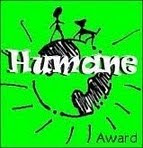In this journal, the teacher noticed that several fourth or fifth-grade students are having a problem when it comes to reading a grade-level texts. When children enter the upper grades unable to read proficiently, their academic performance rapidly spirals down-ward. Without effective intervention, struggling upper-grade readers are likely to experience frustration and failure as they move into middle school and beyond. Shira Lubliner, studied how she can help those students having a hard time when it comes to reading comprehension, She come up with some of the theories and solution of the problem of most of her students.
Children sometimes master the mechanics of early reading in the primary grades but fail to inter grate decoding and comprehension processes. They also develop the habit of skipping words and skimming the surface of the text. these ineffective reading habits result to the reading failure in upper-grade students: Lack of fluency, limited background knowledge, lack of memory, lack of ability to draw inferences and vocabulary deficits. Shira Lubliner focuses to her three struggling readers or students: Janis, was identified as struggling reader due to her poor work and obvious frustration. John, was identified as struggling reader when he failed a social studies test after he had worked hard and tried to studies the material in the book. and lastly, David, also was identified as struggling reader.
The solution: Janis, John and David participated in a wide variety of literacy activities with the rest of fifth-grade class. Thematically, related instruction was designed to help children acquire back-ground knowledge that would strengthen comprehension of the literature and textbook. First, the intervention model, this strategy is based on the cognitive strategy research. Theories have identified cognitive strategies as the tools that children use to manage the information processing system. The four reciprocal teaching: Questioning, clarifying, summarizing and predicting. But in this four reciprocal, the questioning generation convinced her that this was the powerful and practical strategy that could provide her struggling readers with the help they needed. Second, self-generated, main-idea questioning, She found that a specific idea of a text was an essential component of many successful interventions. When student were taught to generate the main-idea questions they were forced to comprehend as they read. The reason why this method is effective in improving children's reading comprehension is that it helps children manage the complex series of information processing tasks involved in proficient reading. Third, She design an instructional sequence, it was based on a questioning Cue Card. She uses the picture on the book cover to activate the students' background knowledge and to spark their interest in reading. This instructional sequence continue with additional modeling by the teacher, responses by the students and coaching the students as they attempt to generate their own main-idea questions. And lastly, Implementing the intervention, Shira worked with Janis, John and David by using the intervention strategy. Using grade level texts for a reading comprehension intervention helps to prepare struggling readers for successful participation in whole-class instruction.
After reading and criticizing the whole journal I come up with the one solution: The teachers have to wait for natural processes of acquisition to take place before they can help the learner. Learners cannot learn a feature which is further than the subject's developmental stage. In the case of Janis, John and David they should learned and practiced the reading skills in their earlier years of school but unfortunately they don not have strong foundation. But like what journalist said in her final word, when primary reading instruction falls short, it is not too late to provide a powerful reading intervention to children who entered the upper grades without adequate reading comprehension skills. With a rich literacy environment (not just only the teachers but also the classmates, buddies, and parents can help the struggling students) with an emphasis on vocabulary acquisition, and instruction in multiple cognitive strategies an likely to be the help to struggling readers.





